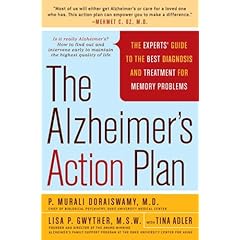
Q. My wife’s doctor thinks she may have an early form of Alzheimer’s disease. It’s been a week since he gave us that devastating news, but I now feel able to gather my wits and do whatever I can to help get her the best care. We are retired, 78 years old, and able to travel to any center that is recommended. What medical specialists should we seek out for a more extensive evaluation and/or care?
Also see Most Early-Onset Dementia Not Alzheimer's and Eight Types of Dementia Defined
Source Johns Hopkins Health Alert
Questions About Alzheimer's Disease
A. Your wife’s primary care physician might be the best person to oversee her care. If you would like to see a specialist in Alzheimer’s disease or would like to participate in research, you should contact the nearest Alzheimer's Disease Research Center or ask your internist if there is a specialist in your community who is particularly knowledgeable about Alzheimer’s disease. Even if you do pursue another opinion or participate in research, you should keep her primary physician informed. In the end, her internist’s care will be crucial to her well being.
Is it Alzheimer's or something else?
Q. Many people assume that if an older person becomes forgetful and can no longer deal with some of the basic activities of daily living, he or she must have Alzheimer’s disease. A sad case in point: My father’s internist diagnosed him with Alzheimer’s disease last year (my father was then 80) and prescribed medication that didn’t seem to help at all. It wasn’t until I took my father to a neurologist that we learned he actually had a benign brain tumor that was affecting his memory and behavior. With that as a backdrop, what are some other brain diseases that may be mistaken for Alzheimer’s? Santa Fe, NM
A. Dementia, the diminution of multiple cognitive abilities occurring in normal alertness, can be caused by numerous factors. These include space-occupying brain lesions (tumors, collections of blood called subdural hematomas, and abscesses); infection (meningitis, encephalitis, syphilis, to name a few); impaired cerebral spinal fluid flow causing normal pressure hydrocephalus; metabolic and endocrine abnormalities (too much or too little thyroid hormone or cortisol are examples); radiation to the brain; brain trauma; stroke; and medication side-effects. Severe depression can also cause dementia. This is why medical, neurologic, and psychiatric assessments are essential parts of the initial evaluation of dementia.

No comments:
Post a Comment